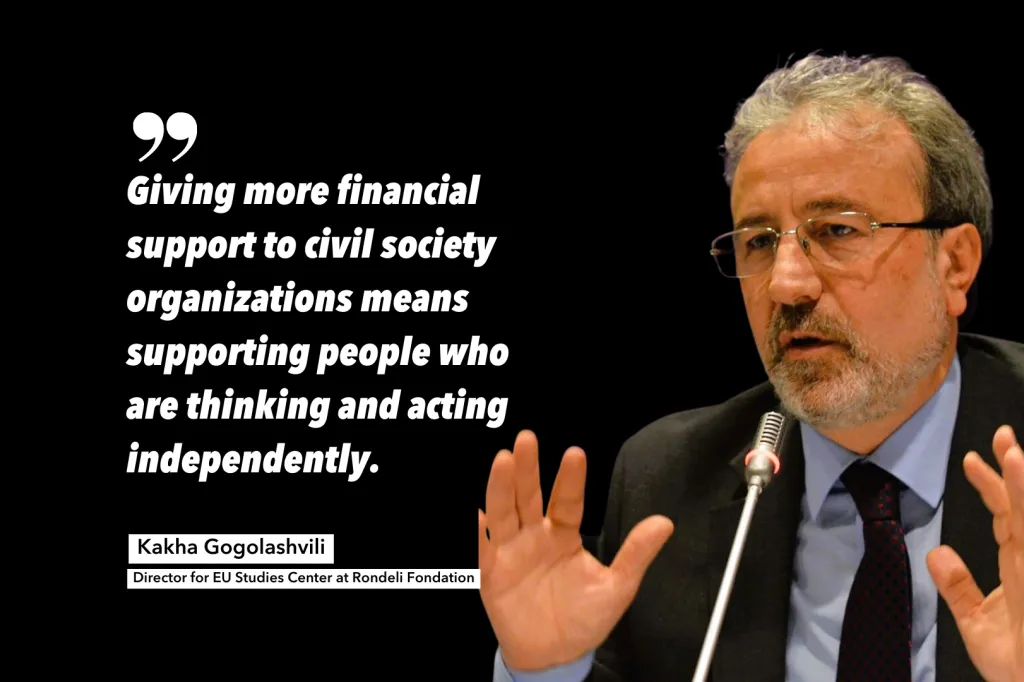Kakha Gogolashvili: “To support civil society is to support at more democratic future for Georgia”

What can Georgia do for the EU?
The priority of the ruling party (Georgian Dream) is to win the election in 2024 and to keep the power. They fear that the 12 priorities set by the EU to reform the country fully implemented may harm their party plans.
To implement EU’s priorities, they need certain things to change, for instance improve the media freedom and impartiality of the judiciary. Indeed, free media or independent judiciary go against their interests because they may lose control respectively over information and courts decisions. Also, this is a regime that thrives on polarization, they do everything in their power to paint the opposition in ugly colors so that people will refrain from voting for them.
The Georgian Dream is not against the country to become members of the EU, but they want it without conditions – and this is impossible. The problem is that a broad majority of Georgians are pro EU, and so the regime must find a way to navigate to keep up the illusion of moving closer to the EU - while things are moving in the other direction.
What can the EU do to support Georgia?
I think that the EU is doing everything that they can do to support Georgia. They know that our country still has issues but continues supporting it. Still, EU and its Member States provide important financial assistance and continue believing that we are able and will fulfill the 12 priorities.
The EU should keep its attention on strengthening civil society in Georgia. Civil society is the best reliable actor in our country. Our political parties are weak and lack an agenda, they also lack in knowledge and professionalism. Giving more financial support to civil society organizations means supporting people who are thinking and acting independently. To support civil society is to support democratic future for Georgia.
What are some of the strengths and weaknesses of Georgian civil society?
There are so many weaknesses… Lack of professionalism, lack of core funding and a lack of compromise culture, unlikely you have in Sweden. People are hardly listening to each other.
About strengths, there is a lot of energy and engagement. Georgians are ambitious people, and they want to be able to show others that they are doing well and a good job. Sometimes it is a bit superficial, but also frank and honest. There is always room for improvement, however, Georgians don’t need to be motivated for action, they are extraverted and socially active people.
This article is part of a series of articles and events organized within the Sweden for Eastern Partnership project. Sweden for Eastern Partnership is run by ForumCiv and financed by the Swedish Ministry for Foreign Affairs.
Andra nyheter

The power of people powered Public-Private Partnerships
Public–Private Partnerships (PPPs) are often discussed in terms of roads, power plants, housing, and other large infrastructure projects. But as discussed on the People’s Partnership Podcast, PPPs are...

ForumCiv’s social media accounts labelled as “extremist materials” in Belarus
Important message to our Belarusian followers. Any interaction with our content can now lead to legal consequences in Belarus. Please read the information below and take the necessary precautions for...

ForumCiv enters new strategic partnership
ForumCiv is proud to announce a new three-year strategic partnership with Sida, totalling SEK 137 million.